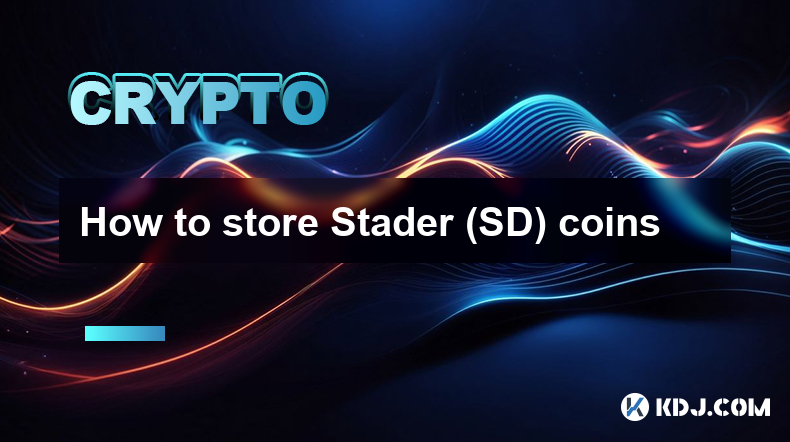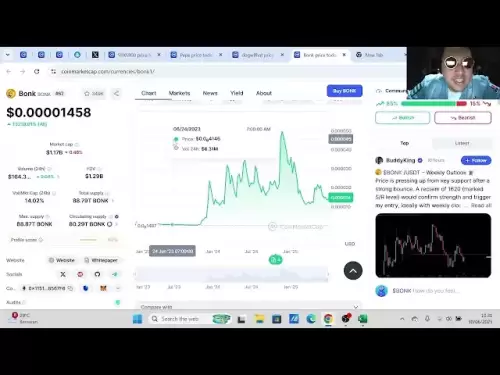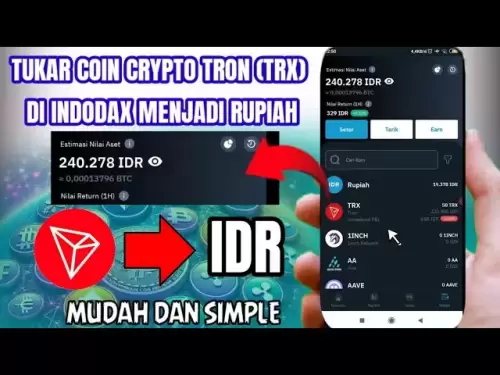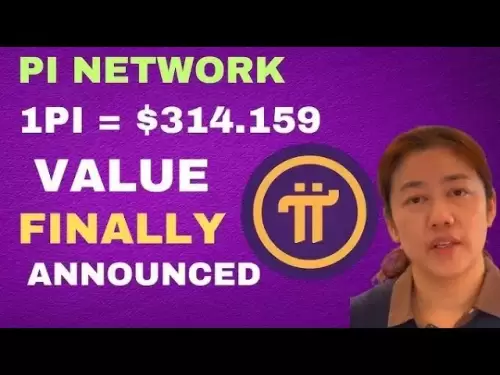-
 Bitcoin
Bitcoin $108,489.6704
1.13% -
 Ethereum
Ethereum $2,502.0528
2.92% -
 Tether USDt
Tether USDt $1.0002
0.00% -
 XRP
XRP $2.1941
0.51% -
 BNB
BNB $655.3375
1.00% -
 Solana
Solana $151.5977
1.27% -
 USDC
USDC $0.9999
0.00% -
 TRON
TRON $0.2768
0.32% -
 Dogecoin
Dogecoin $0.1676
2.86% -
 Cardano
Cardano $0.5675
0.98% -
 Hyperliquid
Hyperliquid $40.6109
7.48% -
 Bitcoin Cash
Bitcoin Cash $500.7746
2.09% -
 Sui
Sui $2.8328
2.03% -
 Chainlink
Chainlink $13.4452
1.26% -
 UNUS SED LEO
UNUS SED LEO $9.1623
0.39% -
 Avalanche
Avalanche $18.2267
2.24% -
 Stellar
Stellar $0.2382
0.00% -
 Toncoin
Toncoin $2.8885
1.68% -
 Shiba Inu
Shiba Inu $0.0...01159
0.91% -
 Litecoin
Litecoin $87.1827
0.88% -
 Hedera
Hedera $0.1511
2.90% -
 Monero
Monero $315.4992
-0.59% -
 Polkadot
Polkadot $3.4663
2.34% -
 Bitget Token
Bitget Token $4.6118
-0.65% -
 Dai
Dai $1.0000
-0.01% -
 Ethena USDe
Ethena USDe $1.0003
0.02% -
 Uniswap
Uniswap $7.2989
4.69% -
 Pepe
Pepe $0.0...01003
5.73% -
 Aave
Aave $275.5616
7.15% -
 Pi
Pi $0.5181
-2.49%
How to store Stader (SD) coins
For enhanced security and control over Stader (SD) coins, consider storing them in software wallets like MetaMask or Trust Wallet, or opt for hardware wallets such as Ledger Nano or Trezor.
Jan 03, 2025 at 10:10 am

Key Points:
- Stader (SD) is a versatile cryptocurrency offering a range of innovative features.
- Understanding the various storage options for SD coins is crucial for securing your digital assets.
- Multiple methods exist to store SD coins, depending on your preference for security, convenience, and control.
Storage Options for Stader (SD) Coins:
1. Centralized Exchanges:
- Suitable for beginners and those seeking ease of access.
- Coins are held by a third-party custodian, providing convenience but less control over security.
- Examples: Binance, KuCoin, Gate.io
2. Software Wallets:
- Software programs installed on your computer or mobile device.
- Provide greater control over your private keys compared to exchanges.
- Popular options: MetaMask, Trust Wallet, Exodus, Atomic Wallet
3. Hardware Wallets:
- Physical devices dedicated to storing cryptocurrencies offline.
- Offer the highest level of security due to isolation from potential online threats.
- Renowned hardware wallets: Ledger Nano, Trezor, SafePal S1
4. Stader Wallet:
- Developed specifically for storing SD coins and providing a tailored user experience.
- Enables staking and other Stader-related operations directly from the wallet.
Best Practices for Storing Stader (SD) Coins:
- Choose a reputable exchange or wallet provider. Research the track record and security measures of platforms before entrusting your coins.
- Utilize two-factor authentication (2FA) and strong passwords. Enhance security by enabling these features to prevent unauthorized access.
- Consider hardware wallets for maximum security. If you value the utmost protection for your assets, cold storage solutions offer peace of mind.
- Regularly review your wallet balances and transaction history. Monitor your coin holdings and keep a record of all transactions for security and accountability.
- Back up your wallet regularly. Protect against potential device failures or loss by creating backups of your wallet and its associated data.
FAQs:
Q: Can Stader (SD) coins be stored on multiple platforms?
A: Yes, SD coins can be stored on a combination of platforms, such as centralized exchanges, software wallets, or hardware wallets.
Q: Is it advisable to leave Stader (SD) coins on exchanges for extended periods?
A: While convenient, leaving SD coins on exchanges exposes them to potential security vulnerabilities. It is recommended to transfer coins to personal wallets or hardware wallets for enhanced security.
Q: How can I ensure the authenticity of a Stader wallet?
A: Verify the wallet's legitimacy by visiting the official Stader website or contacting their support team. Avoid downloading or using wallets from untrusted sources.
Q: Is it possible to recover lost or stolen Stader (SD) coins?
A: Recovery depends on the storage method used. If coins are stored in a centralized exchange, contact their support team for assistance. However, if coins are lost from a non-custodial wallet, recovery may not be possible without access to the wallet's private keys.
Disclaimer:info@kdj.com
The information provided is not trading advice. kdj.com does not assume any responsibility for any investments made based on the information provided in this article. Cryptocurrencies are highly volatile and it is highly recommended that you invest with caution after thorough research!
If you believe that the content used on this website infringes your copyright, please contact us immediately (info@kdj.com) and we will delete it promptly.
- Rekt, Ovie Faruq, and the Movement: How a Crypto Meme Became a Consumer Brand
- 2025-06-30 21:10:14
- BlockDAG, Crypto Loyalty, and the XRP Slide: What's the Buzz?
- 2025-06-30 21:10:14
- Cryptos to Invest in Now: Spotting the Future Giants
- 2025-06-30 20:50:12
- PENGU's Upside Rally: Decoding the Stock Potential
- 2025-06-30 21:15:12
- Arbitrum, Robinhood, and Pullback Risk: Decoding the Latest Buzz
- 2025-06-30 21:20:12
- Chainlink Price Prediction: Will LINK Hit $13 Peak or Face Correction?
- 2025-06-30 21:25:11
Related knowledge

How to customize USDT TRC20 mining fees? Flexible adjustment tutorial
Jun 13,2025 at 01:42am
Understanding USDT TRC20 Mining FeesMining fees on the TRON (TRC20) network are essential for processing transactions. Unlike Bitcoin or Ethereum, where miners directly validate transactions, TRON uses a delegated proof-of-stake (DPoS) mechanism. However, users still need to pay bandwidth and energy fees, which are collectively referred to as 'mining fe...

USDT TRC20 transaction is stuck? Solution summary
Jun 14,2025 at 11:15pm
Understanding USDT TRC20 TransactionsWhen users mention that a USDT TRC20 transaction is stuck, they typically refer to a situation where the transfer of Tether (USDT) on the TRON blockchain has not been confirmed for an extended period. This issue may arise due to various reasons such as network congestion, insufficient transaction fees, or wallet-rela...

How to cancel USDT TRC20 unconfirmed transactions? Operation guide
Jun 13,2025 at 11:01pm
Understanding USDT TRC20 Unconfirmed TransactionsWhen dealing with USDT TRC20 transactions, it’s crucial to understand what an unconfirmed transaction means. An unconfirmed transaction is one that has been broadcasted to the blockchain network but hasn’t yet been included in a block. This typically occurs due to low transaction fees or network congestio...

How to check USDT TRC20 balance? Introduction to multiple query methods
Jun 21,2025 at 02:42am
Understanding USDT TRC20 and Its ImportanceUSDT (Tether) is one of the most widely used stablecoins in the cryptocurrency market. It exists on multiple blockchain networks, including TRC20, which operates on the Tron (TRX) network. Checking your USDT TRC20 balance accurately is crucial for users who hold or transact with this asset. Whether you're sendi...

What to do if USDT TRC20 transfers are congested? Speed up trading skills
Jun 13,2025 at 09:56am
Understanding USDT TRC20 Transfer CongestionWhen transferring USDT TRC20, users may occasionally experience delays or congestion. This typically occurs due to network overload on the TRON blockchain, which hosts the TRC20 version of Tether. Unlike the ERC20 variant (which runs on Ethereum), TRC20 transactions are generally faster and cheaper, but during...

The relationship between USDT TRC20 and TRON chain: technical background analysis
Jun 12,2025 at 01:28pm
What is USDT TRC20?USDT TRC20 refers to the Tether (USDT) token issued on the TRON blockchain using the TRC-20 standard. Unlike the more commonly known ERC-20 version of USDT (which runs on Ethereum), the TRC-20 variant leverages the TRON network's infrastructure for faster and cheaper transactions. The emergence of this version came as part of Tether’s...

How to customize USDT TRC20 mining fees? Flexible adjustment tutorial
Jun 13,2025 at 01:42am
Understanding USDT TRC20 Mining FeesMining fees on the TRON (TRC20) network are essential for processing transactions. Unlike Bitcoin or Ethereum, where miners directly validate transactions, TRON uses a delegated proof-of-stake (DPoS) mechanism. However, users still need to pay bandwidth and energy fees, which are collectively referred to as 'mining fe...

USDT TRC20 transaction is stuck? Solution summary
Jun 14,2025 at 11:15pm
Understanding USDT TRC20 TransactionsWhen users mention that a USDT TRC20 transaction is stuck, they typically refer to a situation where the transfer of Tether (USDT) on the TRON blockchain has not been confirmed for an extended period. This issue may arise due to various reasons such as network congestion, insufficient transaction fees, or wallet-rela...

How to cancel USDT TRC20 unconfirmed transactions? Operation guide
Jun 13,2025 at 11:01pm
Understanding USDT TRC20 Unconfirmed TransactionsWhen dealing with USDT TRC20 transactions, it’s crucial to understand what an unconfirmed transaction means. An unconfirmed transaction is one that has been broadcasted to the blockchain network but hasn’t yet been included in a block. This typically occurs due to low transaction fees or network congestio...

How to check USDT TRC20 balance? Introduction to multiple query methods
Jun 21,2025 at 02:42am
Understanding USDT TRC20 and Its ImportanceUSDT (Tether) is one of the most widely used stablecoins in the cryptocurrency market. It exists on multiple blockchain networks, including TRC20, which operates on the Tron (TRX) network. Checking your USDT TRC20 balance accurately is crucial for users who hold or transact with this asset. Whether you're sendi...

What to do if USDT TRC20 transfers are congested? Speed up trading skills
Jun 13,2025 at 09:56am
Understanding USDT TRC20 Transfer CongestionWhen transferring USDT TRC20, users may occasionally experience delays or congestion. This typically occurs due to network overload on the TRON blockchain, which hosts the TRC20 version of Tether. Unlike the ERC20 variant (which runs on Ethereum), TRC20 transactions are generally faster and cheaper, but during...

The relationship between USDT TRC20 and TRON chain: technical background analysis
Jun 12,2025 at 01:28pm
What is USDT TRC20?USDT TRC20 refers to the Tether (USDT) token issued on the TRON blockchain using the TRC-20 standard. Unlike the more commonly known ERC-20 version of USDT (which runs on Ethereum), the TRC-20 variant leverages the TRON network's infrastructure for faster and cheaper transactions. The emergence of this version came as part of Tether’s...
See all articles

























































































